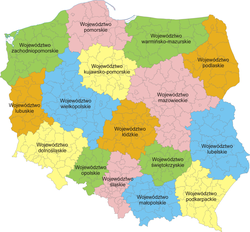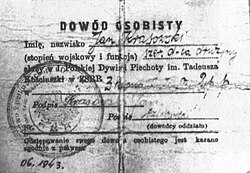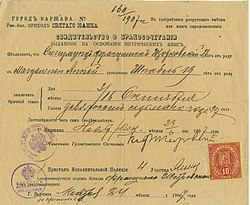Polish genealogy presents a complex challenge due to the intricate historical context of the country. Considerations such as its short history, significant population losses, and border changes must be taken into account when exploring one's roots in Poland. Fortunately, for most individuals it is possible to trace their family history back to the early 18th century.
Research your ancestors on MyHeritage
Polish historical backgroundPolish historical background

Examining the country's history from the 18th-century perspective reveals the migration of the German population to Poland, which continued until the first quarter of the 19th century. Additionally, Jewish communities became more prominent during this time. Prior to the dissolution of the country, Poland was a vast territorial empire encompassing various ethnicities, including Tartars, Armenians, and Greeks. Some of their descendants still reside in Poland or elsewhere worldwide, either aware or unaware of their historical heritage.
In 1795, the old Kingdom of Poland was conquered and divided among Russia, Austria, and Prussia. Civil registration coverage varied for each part of Poland controlled by Russia, Prussia, or Austria. The loss of independence in 1795 resulted in portions of the population being placed under the control of three different countries, and some individuals assimilated into their occupying nations. However, a majority of the Polish population maintained their allegiance to the non-existent country. Lots of Polish inhabitants moved to other countries and assimilated to their cultures, adapting new personal names and surnames.
The composition of the Polish population adds complexity to genealogical research. Poland has been home to diverse religious and ethnic communities, including Poles, Jews, Germans, Ukrainians, Belarusians, and others. Each group may have distinct historical records and sources that need to be explored to uncover family connections and individual stories.
Language can also be a barrier in Polish genealogy research. Many historical records are written in Polish or other regional languages, necessitating translation and interpretation to extract relevant information. Familiarity with Polish language basics and specialized genealogical terminology can greatly facilitate the research process.
Polish genealogy research steps - initial researchPolish genealogy research steps - initial research

To focus the research efforts, select a specific relative or ancestor born in Poland for whom you have at least a name, the village or parish of residence in Poland, and an approximate birth date. It is essential to begin with family and home sources. Any document can be useful in tracing your ancestors’ history: birth, marriage, and death certificates, family bibles, obituaries, diaries, and other similar records that provide names, dates, and places. Additionally, reaching out to relatives can yield valuable information, as they may already possess some family knowledge. It is crucial to organize and record the gathered information on pedigree charts and family group records. These will help gather certain key pieces of information, including the actual name of an ancestor, dates of birth, marriage, and death, place of origin, and the religion of the ancestor.
Search by nameSearch by name
Determining the actual name of an immigrant ancestor can be challenging, as some individuals changed their names upon assimilation into the cultures of the counties they probably moved to. This is particularly true for given names and to a lesser extent for surnames. To trace an ancestor by name check Polish surnames and use the database Polish surnames.
Search by placeSearch by place

Knowing the place of origin in Poland is crucial, as most records used in Polish family history research are kept at the town or parish level. The place of origin may be found in the following documents:
- Birth certificates
- Marriage certificates or licenses
- Death certificates
- Obituaries
- Funeral cards
- Journals
- Photographs
- Letters
- Family bible
- Naturalization papers
- Citizenship papers
- Military service records
The Polish place of origin is often found in sources created in the country of immigration. It is recommended to search these records for the ancestor, possible relatives, and other associated individuals. Once the correct town name from which the ancestor emigrated is determined, establishing its location becomes the next step. Many Polish localities have similar names, which can lead to confusion.
Polish religionPolish religion
Considering that vital records in Poland were primarily maintained by church parishes or Jewish congregations until the 1900s, understanding the ancestor's religion is important. Roman Catholic records should be searched first, as Catholicism was the dominant religion in the former Austro-Hungarian Empire.
Polish parishesPolish parishes
Determining the record-keeping jurisdiction is necessary, as not every village in Poland had its own parish. Often, several smaller villages were part of a single parish. The parish information is essential as many archives provide church records by parish. Once the parish information is obtained, checking the available records in the databases becomes feasible.
The church records kept by local parishes are the best sources of genealogical information in Poland.
See alsoSee also
Research your ancestors on MyHeritage
Explore more about Polish genealogyExplore more about Polish genealogy
- Polish vital records on MyHeritage
- How to Research Your Ethnicity with Genealogy on the MyHeritage Genealogy Hub
- Ethnicity map of Poland on MyHeritage
- Polish historical records on MyHertage
- Polish library archive
- Polish state archive
- Polish Genealogical Society
- Polish Census

